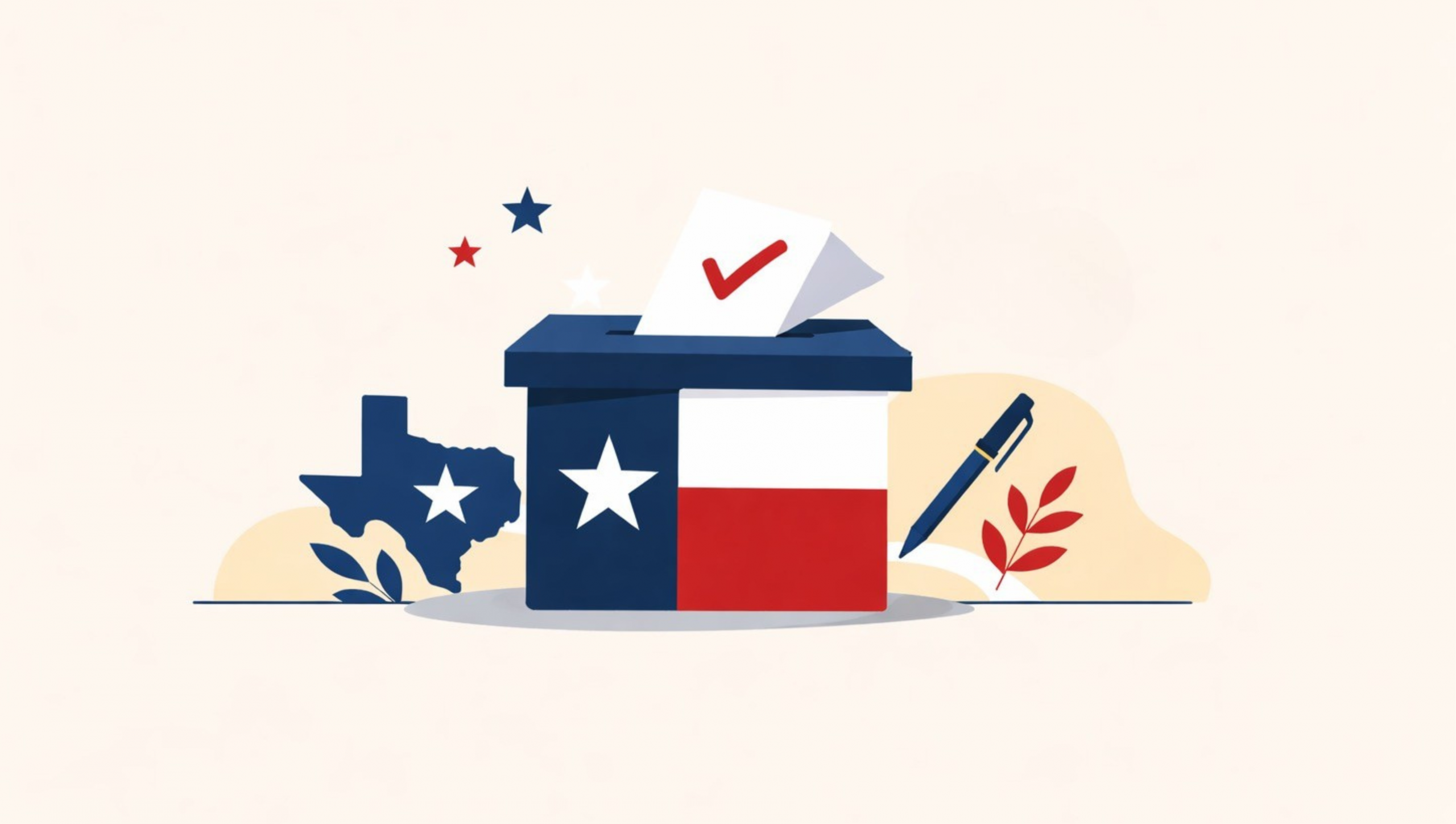Texas is once again grappling with the issue of taxpayer-funded lobbying, a practice that has drained taxpayer’s wallets for decades while pitting government entities against the very citizens they are supposed to serve. And the issue is coming to a head during the current special session in the Texas House.
What is Taxpayer-Funded Lobbying?
Local governments, like cities, counties, school districts, and special districts, have increasingly used taxpayer dollars to hire lobbyists or fund associations like the Texas Municipal League (TML), Texas Association of School Boards (TASB), and Texas Association of School Administrators (TASA). These contract lobbyists and groups often advocate for policies that expand government power, increase taxes, or block reforms favored by taxpayers.
Spending on this practice has escalated dramatically: from approximately $40 million in 2017 to $75 million in 2021, reaching a staggering $98.6 million in 2023, with projections nearing $100 million for 2025. This money, which could fund essential services like infrastructure repairs, public safety enhancements, or property tax relief, instead fuels a lobbying machine that undermines accountability and liberty.
The origins of taxpayer-funded lobbying in Texas trace back to when local entities began pooling resources to amplify their influence in Austin. What started as purported “education” efforts for legislators has evolved into a sophisticated operation, with associations like TML and TASB becoming fixtures at the Capitol. This creates a direct conflict of interest: taxpayers are compelled to finance advocacy that resists fiscal restraint, such as property tax relief or spending limits. For instance, TML recently lobbied against a bill allowing citizens to petition for de-annexation from cities failing to provide services like water and sewer despite collecting taxes. TASA opposed ending “golden parachutes” for terminated government employees, preserving payouts worth hundreds of thousands in public funds. TASB fought Texas’s first school choice program (SB 2), prioritizing bureaucratic funding over family options. These examples illustrate how taxpayer money is weaponized against reforms that promote efficiency and choice.
Why End the Practice?
Proponents of the practice claim it gives smaller or rural communities a voice, arguing they lack the expertise to engage lawmakers directly. However, this defense falls short—local officials already have unfettered access to testify, provide information, or contact representatives without needing expensive intermediaries. Banning taxpayer-funded lobbying wouldn’t silence local governments; it would simply require them to advocate transparently and accountably, without outsourcing to professionals paid by the taxpayer.
There are three compelling reasons to end this practice once and for all. First, it undermines liberty and accountability by forcing taxpayers to subsidize efforts that erode their financial interests, such as pushing for more taxing authority or opposing transparency measures. Unlike private citizens who fund advocacy voluntarily, governments tax and spend without direct consent. Second, it tilts the playing field against ordinary Texans, as well-funded lobbyists outmatch grassroots voices at the Capitol. Lawmakers who pledge fiscal conservatism often allow this system to persist, betraying their constituents. Third, it fuels government growth and blocks reform, with local government lobbyists defending the status quo against pro-taxpayer reforms.
Fundamentally, local governments should not use the people’s money to hire professional lobbyists who in turn lobby other government. Public support to end the practice is overwhelming—95% of Republican primary voters in 2020 and 67% in the 2024 general election voters backed a ban, transcending partisanship.
Where the Issue is Today
In the current second special session, the Texas Senate has acted decisively. Senate Bill 13 (SB 13), authored by Senator Mayes Middleton (R-Galveston), passed the Senate and has been referred to the House State Affairs Committee. This follows SB 12 in the first special session and SB 19 in the regular session, both of which stalled in the House.
Now, the focus shifts to the Texas House, where freshman Representative Mike Olcott (R-Aledo) is spearheading House Bill 186 (HB 186), filed on August 18, 2025, and identical to SB 13. HB 186 amends the Government Code to prohibit political subdivisions from using public funds to hire registered lobbyists under Chapter 305 or pay dues to lobbying associations.
Olcott’s efforts to secure co-authors are vital to building momentum. And as of the morning of August 22nd, Olcott has secured 59 co-authors, just 16 members away from the 76 required to pass the legislation on the floor.
Twenty-six Republican Representatives, however, have thus far refused to sign on (***see update below). Those members are:
| Representative | District |
| Ashby | 9 |
| Barry | 29 |
| Bell, Keith | 4 |
| Buckley | 54 |
| Capriglione | 98 |
| Button | 112 |
| Craddick | 82 |
| Curry | 56 |
| Darby | 72 |
| Dean | 7 |
| DeAyala | 133 |
| Dyson | 14 |
| Fairly | 87 |
| Geren | 99 |
| Harless | 126 |
| Isaac | 73 |
| King | 88 |
| Kitzman | 85 |
| Lambert | 71 |
| Louderback | 30 |
| Lujan | 118 |
| McLaughlin | 80 |
| Phelan | 21 |
| Schofield | 132 |
| Smithee | 86 |
| VanDeaver | 1 |
| Wharton | 12 |
The bottleneck lies in the House State Affairs Committee, chaired by Rep. Ken King (R-Canadian) who previously denied SB 19 a hearing during the regular session. The committee includes Vice Chair Ana Hernandez (D), Rafael Anchia (D), Drew Darby (R), Yvonne Davis (D), Charlie Geren (R), Ryan Guillen (R), Lacey Hull (R), John McQueeney (R), Will Metcalf (R), Dade Phelan (R), Richard Peña Raymond (D), John Smithee (R), Senfronia Thompson (D), Chris Turner (D).
Without a swift hearing and favorable vote, HB 186 or SB 13 could falter again.
Conclusion
To these 26 Republicans and committee members: the time to act is now. Co-authoring HB 186 and supporting the bill in committee, aligns with the demands of taxpayers across the State. Representative Olcott’s initiative deserves reinforcement—join him, co-author HB 186, and champion fiscal responsibility.
Passing this legislation would save millions, restore trust, and set a national example. Failure, however, would signal that special interests continue to prevail over Texas taxpayers.
***UPDATE: August 25th, 2025
On the evening of August 25, seven additional co-authors were added to HB 186. The Representatives to added their signature to the bill were:
Tom Craddick
Pat Curry
Mano DeAyala
Paul Dyson
Carrie Isaac
Stan Kitzman
Trey Wharton
With these members now on board, it brings the total number of House supporters to 65 out of 88 Republicans.
Texans for Fiscal Responsibility relies on the support of private donors across the Lone Star State in order to promote fiscal responsibility and pro-taxpayer government in Texas. Please consider supporting our efforts! Thank you!
Get The Fiscal Note, our free weekly roll-up on all the current events that could impact your wallet. Subscribe today!




